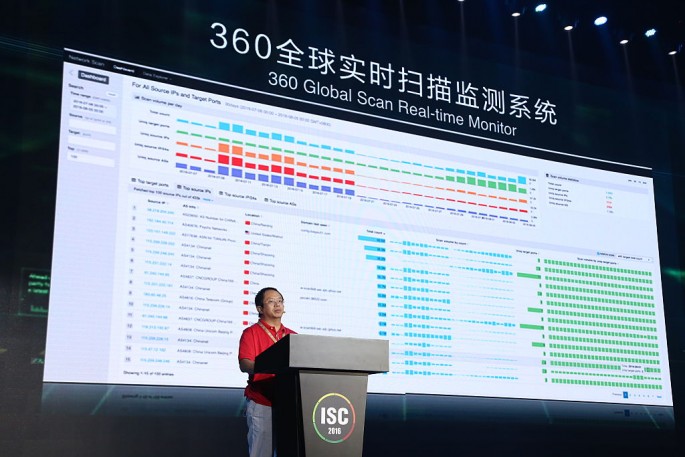China's leading Internet security service provider Qihoo 360 urged different governments, enterprises and companies for a transparent collaboration in developing cyberspace security, China Daily reported.
Zhou Hongyi, the company's chief executive, made the call during the 2016 China Internet Security Conference (ISC) held on August 15-17 at Beijing's China National Convention Center. The annual meeting was jointly organized by the Internet Society of China and Qihoo 360.
Zhou however said that the industry must first overcome individual interest and competition to realize the goals as companies or countries could not even share core data or give each other information,even share their anti-leak strategies.
The company also unveiled its free Internet bug detector dubbed as "360 real-time global networks scanning and monitoring system".
According to Qi Xiangdong, president of Qihoo 360, users can patch bugs by scanning and monitoring the Internet with the aim to look for errors, flaws or flaws in the system.
Qi said that international cyberspace protection providers can work jointly in addressing the rising demand in the market as business, state-owned and private companies continue to grow and expand.
"Some of our customers will purchase cyber protection products or services from not only one provider to meet their security standards and it's actually stimulating the synergic effect between the different protectors to work together," Qi said.
Qi said that the industry has the opportunity to develop as the Internet of Things (IoT) and artificial intelligence (AI) spread out.
"Every parts of our life will be connected through the Internet, and for some technology geeks or early adaptors who work in the industry, they are keen on promoting the interconnections between cyber security equipment," Qi said. "They're eager to lean advantages from their competitors."
Cyber security in the IoT industry have become a concern around the world as the industry grows rapidly, getting more connected into people's everyday lives.
John McAfee, the developer of the first commercial anti-virus program McAfee, also attended the event. He said cyber security threat has become an important challenge as more devices and equipment had been connected to the Internet.
"When a hardware engineer making a bread maker or a refrigerator, he may not consider potential hazard on internet security, and both the software and hardware of the device are not be able to handle the challenges, which leaks many bugs for hackers," McAfee said.
More than 30,000 delegates attended the event.



























